Congratulations! You’ve found your dream home. It’s amazing, has everything you want, within your budget and so much more. The thing is…it's not built yet; it only exists on paper. So now what? Here’s how to navigate the intricacies of buying a home pre-construction, aka before it’s built, and sometimes before the ground is even broken.
As your real estate agents, our job is to educate you on the process and manage your expectations. The more you know, the easier it is to strap in and enjoy a once-in-a-lifetime ride to your brand spanking new home.
New Construction Customization
Choosing your cabinets, floors and countertops is one of the great benefits of buying a home that isn’t built yet. And, it can be fun! But before you start an interior design Pinterest board, let’s go over the reality of what “customization” means when purchasing a pre-construction home. The truth is, you are usually choosing between finishes offered by the builder. Hopefully, the developers spring for a professional designer to create options so attractive, that choosing between the light or dark kitchen is the most difficult decision of your life.
While it may sound limiting to select from curated colors and fixtures instead of having carte blanche to do whatever you want, it keeps the purchase price down, the timeline on schedule, and can prevent decision fatigue. Here’s why:
Permits: The planning, zoning, and construction permit process enforced by the City of Philadelphia is long, complicated, filled with bugs, takes forever, and is expensive. Once a building permit is issued, permit alterations take the developer all the way back to square one and include fees.
Administration: If you customized every single finish, fixture and design choice in a new construction home, someone has to coordinate the purchase, delivery, and direction of every single item. Multiply that times each home in a development, and the administration costs go way up.
Efficiency: When contractors buy multiples of the same items, like appliances, they may receive a discount that they can extend to their buyer. In addition, installing that exact set of appliances multiple times is efficient. They know how to do it, what parts are hiding in the boxes, which tools they need, how many hands are required, and other experiential nuances that come with practice. If every make and model is different in each home, the installers have to learn from scratch what’s in the box, which tools they need, what alterations have to be made to accommodate an item on site. All of this takes time and costs money.
PHG agent Kate McCann usually encourages her clients to dial down when it comes to customizing new construction. “You really don't want to make every decision. Do you want this to be your entire life? Or are you just picky about closets, light fixtures, tile, and what the deck is made out of? I always caution people that customizing a home can become their whole personality, life, and hobby. It's also nice to choose lots of things, but maybe not everything.” Instead of sweating the small stuff (which costs you and delays your home being built), budget for changes after you’ve lived in it for a while. This way you’ll get a feel for the natural light and flow of your daily life in the space before making any changes. Many times, the original sticking points you have become less important over time.
Custom Build
If you want to go wild changing floor plans and controlling every tiny detail down to choosing your light switch covers, you're having a custom home built. While we occasionally see these types of pre-construction homes in the city, we find they are more common in the suburbs with single-family homes. They do take longer (due to changes in the permits, as explained above), but you may have more freedom with things like floor plans or custom cabinets. Sometimes the builder supplies a budget for choosing finishes. You get to shop for what you want and if you select something more expensive than the budget allows for, you shell out the cash for the difference. The catch is, these costs are non refundable if you cancel your contract. These terms will be in your purchase contract, so you will be aware of any risks ahead of time.
PHG agent Kate Kyle prepares her clients for decision fatigue with a custom build. “My client built his home from the ground up - he was not only getting to choose countertops and backsplashes but it dialed down all the way to the doorknobs and hinges. On the plus side he knew exactly what was going to be in his home (and he has excellent taste!), but there were moments of exhaustion and stress in making final decisions”. To get every finish her client wanted, the completion date extended a few months...which brings us to our next topic.
Pencil In Your Move-in Date
When you sign your purchase agreement, it’ll have a mutually agreed upon target delivery date. It’s a date you should pencil in your calendar as it can get extended. Before you close, Philly’s Licensing & Inspections department (L&I) needs to issue a Certificate of Occupancy (CO), a document certifying that a building is safe to be occupied. In order to get this, builders are at the mercy of the city’s inspectors and utility companies who are required to certify the completeness and correctness of the finished product. So even if the builder is on schedule, the other parties involved can cause your closing date to be pushed back. You can save yourself some anxiety and stress by anticipating delays. And hey, if by some stroke of luck you DO close on time, it will feel amazing!
The Money Piece
If you are getting a mortgage, the pre-approval process on a new construction is the same as if you were purchasing an existing property, even if you’re a year out from delivery date. The difference is your rate floats until you are nearing the end of your project build. Occasionally, delays go beyond the rate lock expiration date and you’ll need a rate lock extension. If the builder is culpable for the delays, they may pay for your rate lock extension, but it’s not guaranteed. This is why you want your lender, agent, and builder to be communicative, experienced, and realistic.
One financial benefit of having a far away closing date is you’ll have extra time to list your current home for sale at an aspirational price to see if the market will meet it. If you sell quickly or if you have a strict lease end date, your agent can help you negotiate a leaseback or think of creative temporary housing. Either way, it’s important to keep that in mind while budgeting.
Another hidden financial benefit of buying pre-construction is you can negotiate today’s price on your home that will inevitably appreciate during the span of time your home is being built. Ask your Philly Home Girls agent to share the area’s appreciation history and forecast with you.
Bonuses to Buying New
Builder’s Warranty: Pennsylvania requires a newly built home to have a two-year builders warranty. That said, what you’re receiving as part of your purchase is a “Limited Builder’s Warranty” which typically reduces the statutory coverage to 1 year, and outlines the builder’s liability. You’ll want to go through the warranty document carefully so you know what is covered. Most of the time you’ll read nail pops and settlement cracks aren’t included, and all the appliances are covered by manufacturer’s warranties. So make notes about how to make a warranty claim, to whom, and by when you are pouring over the document, as opposed to scrambling to find out .
PHG agent Peter Brooks has this recommendation. “Towards the end of your first year of living in the home, document everything you would consider defects that you can see or have experienced. Understanding what is included in your warranty is imperative because there are different levels of coverage.” While your warranty may only be good for a year, it should theoretically cover problems that occurred before it ends.
Tax Abatement: Understanding Philadelphia’s property taxes is essential for any buyer. When you purchase a new construction in Philly, it’s also important to know what the tax abatement is and how it works. For the abatement to be approved, all of these steps have to happen: 1) The developer/builder has to apply for the tax abatement with the Office of Property Assessment (OPA) within 60 days of the building permit being issued. 2) After the work is completed, it must be inspected by a different city department, L&I, who will generate a Certificate of Occupancy. 3) The builder has to take the CO back to the OPA to finalize the tax abatement. Once approved, the OPA determines the value of the improvements made to the home. This will be the value exempt from your home’s assessed value, which determines property tax. It’s important to note that the exempt value is on the improvements (what is built) and not on the land. The land value is not exempt in a tax abatement. Read more about how the city of Philadelphia determines property tax and how the abatement affects it here. When you close on a home before the tax abatement is finalized, it’s best to find out what steps are not finished. Often, buyers have to do step #3 on their own after settlement.
Although buying a new construction home is not for the faint of heart, in the end it can be incredibly rewarding. And with the current low inventory, it is a great option for those who have already been waiting a year for the perfect home to pop up. Having Philly Home Girls at your side to monitor and guide you through the process, help you keep things moving in the right direction, and provide the champagne for the maiden voyage, you’ll survive, and hey, probably have a little fun along the way.





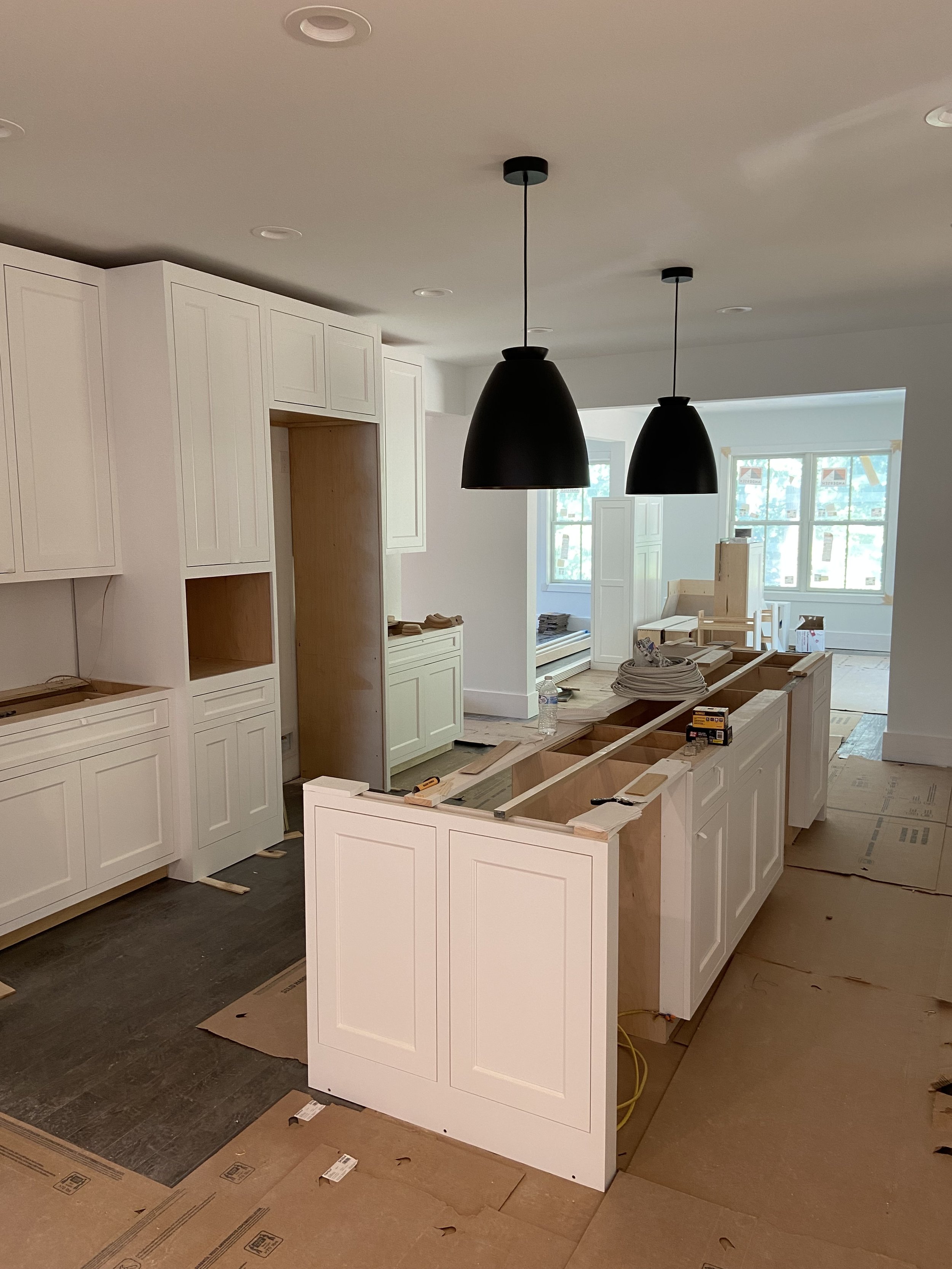
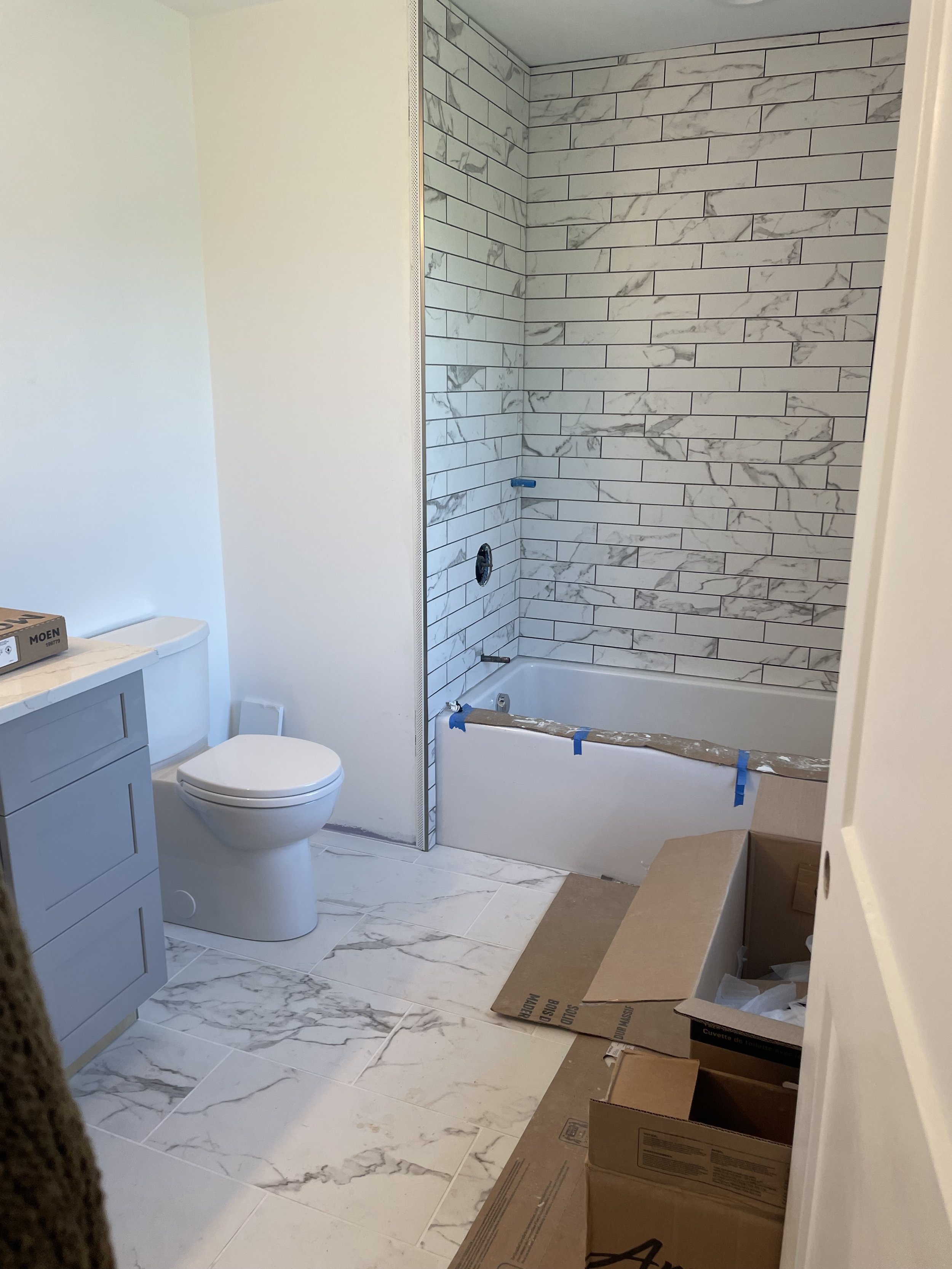
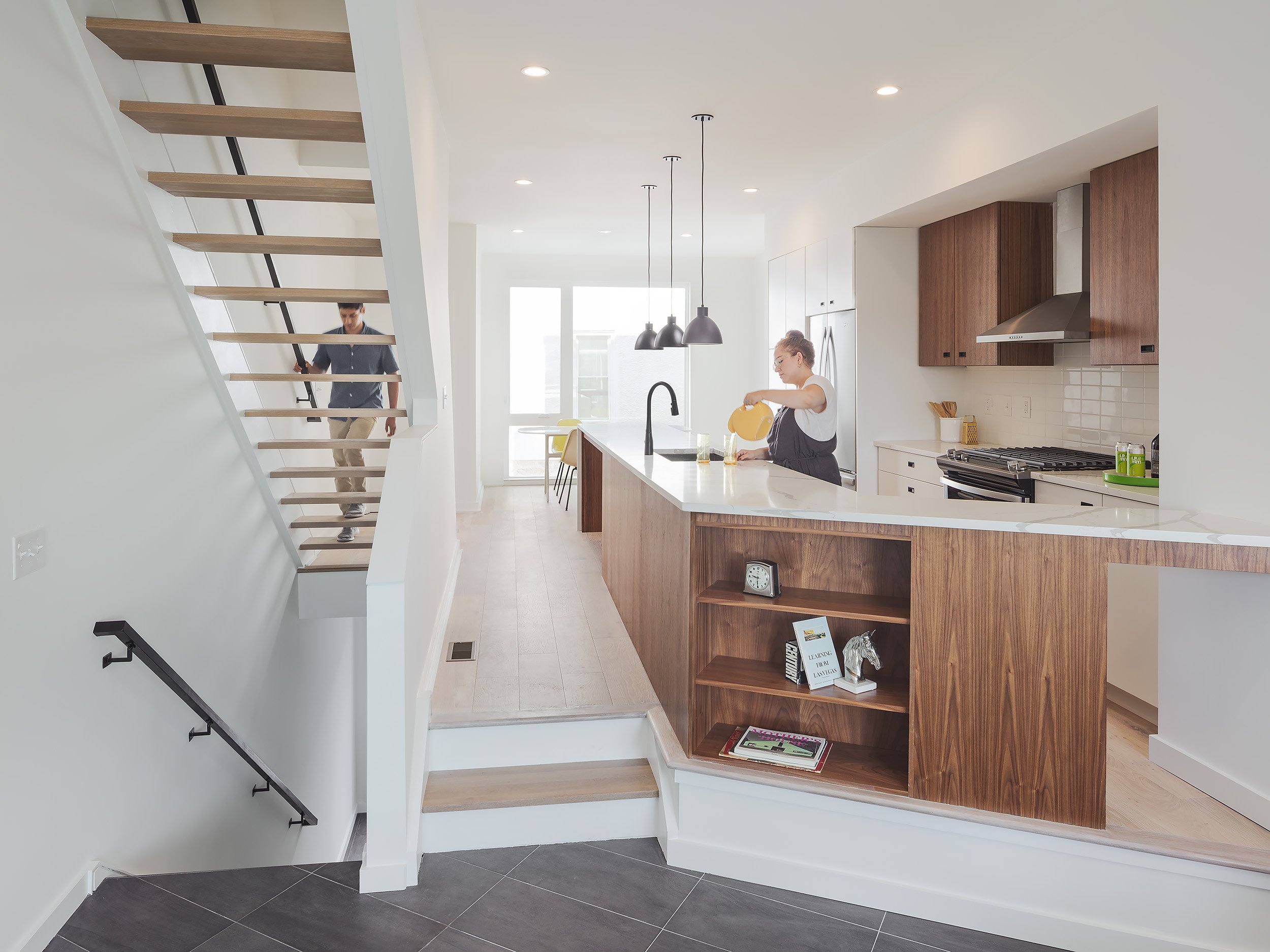
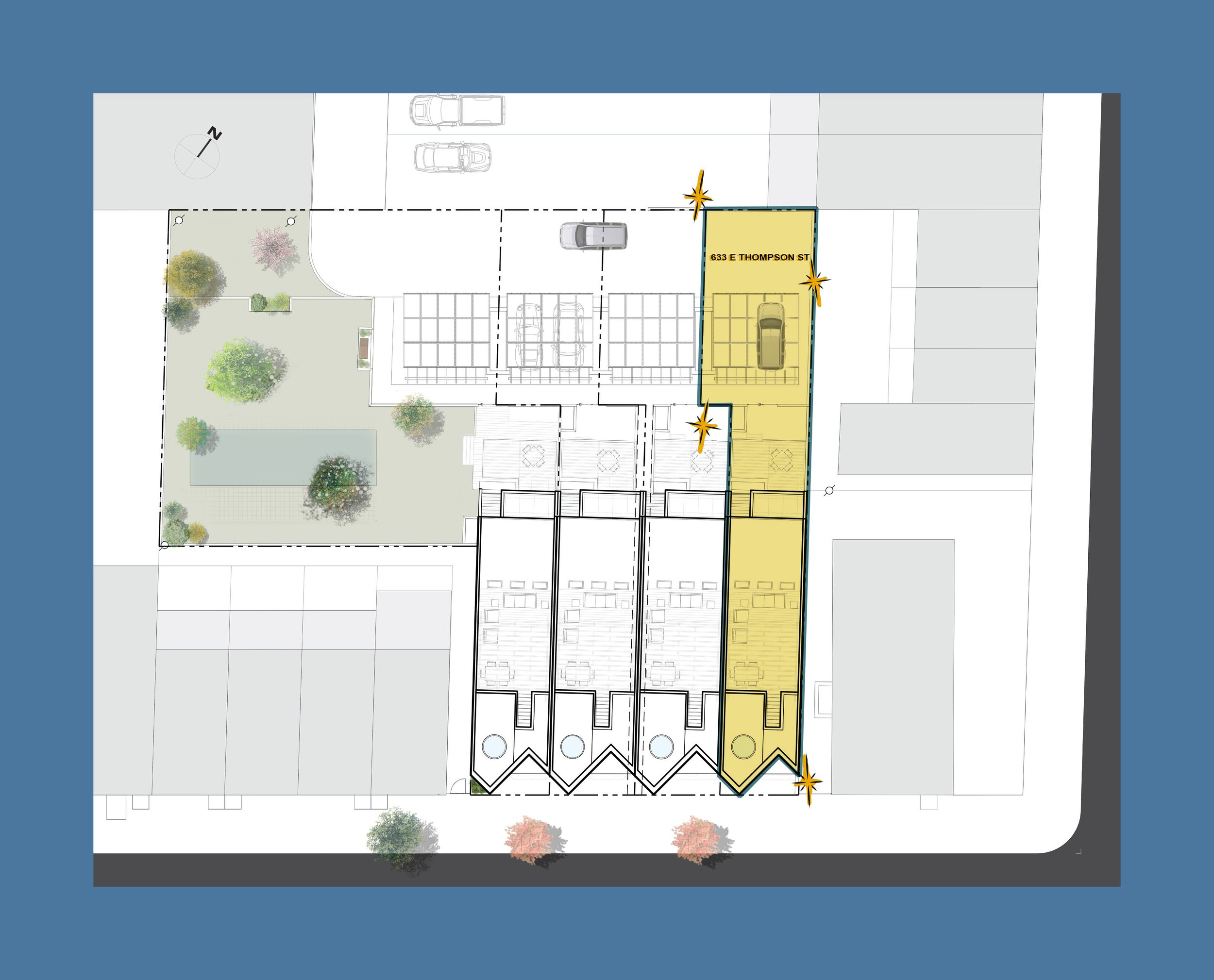
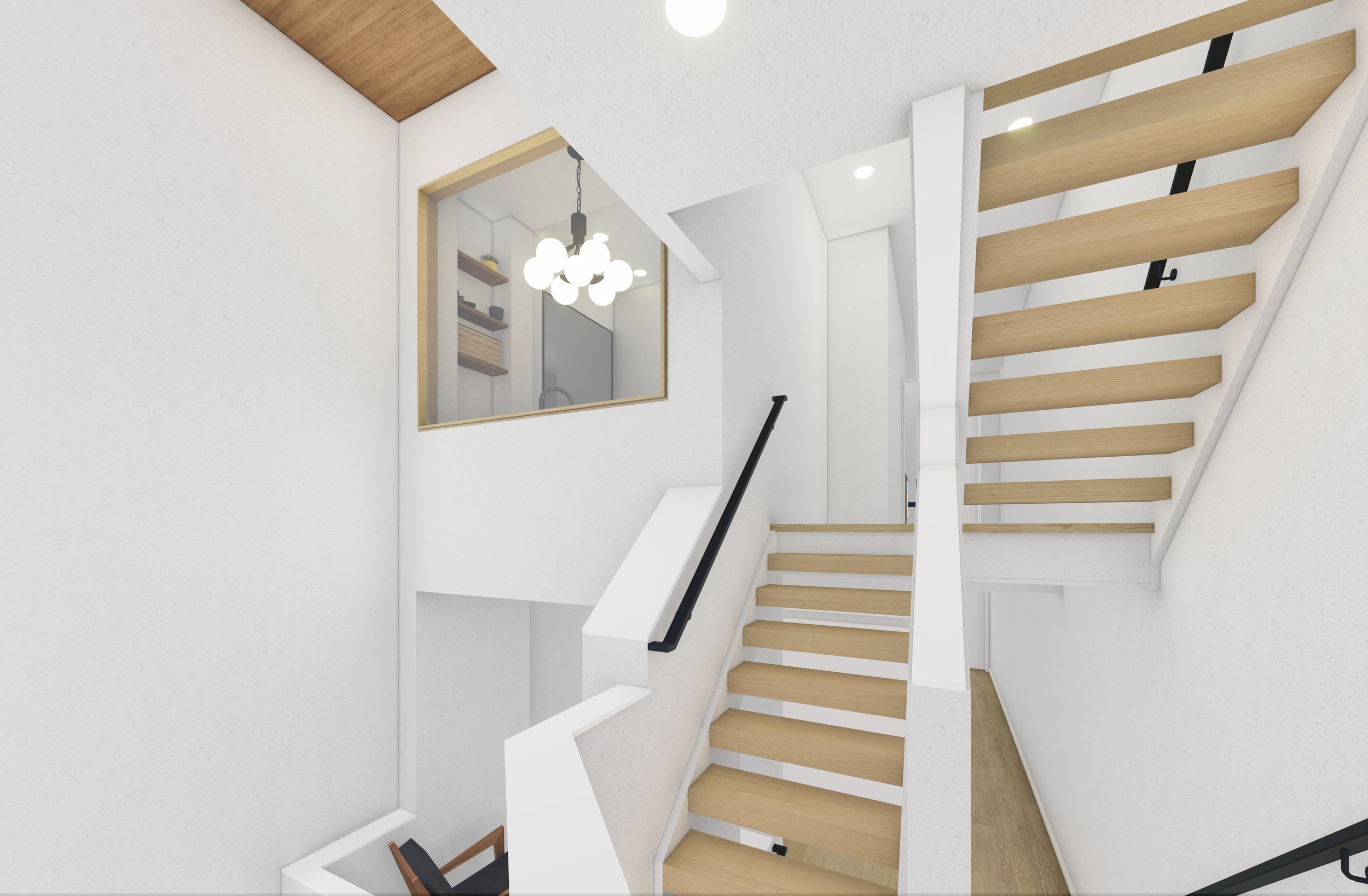









Saving money for a downpayment and closing costs is the # 1 reason people are holding off on purchasing a home. PHG agent Rachel Shaw came up with a trusty list of some of her favorite homebuyer assistance grants and loan programs. With a little help, your dream of owning a home may not be as far off as you thought!